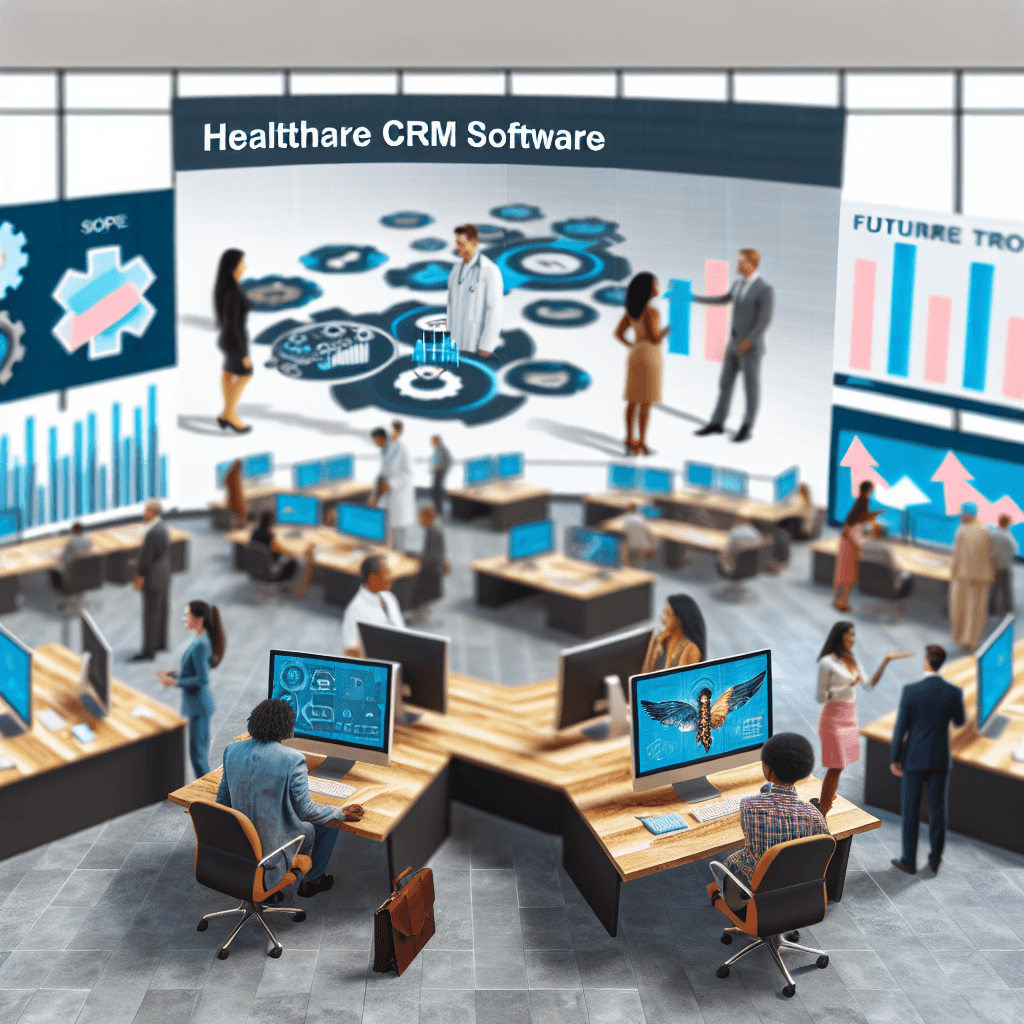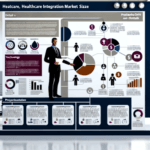Explore the Healthcare CRM Software Market: trends, size, share, scope, and forecasts. Get key insights and data analysis.
Healthcare CRM Software Market Size, Share, Scope, Trends & Forecast

Table of Contents
Healthcare CRM Software Market Size, Share, Scope, Trends & Forecast

The healthcare industry is increasingly turning to Customer Relationship Management (CRM) software to streamline operations, enhance patient engagement, and improve healthcare outcomes. This article explores the current landscape and future prospects of the healthcare CRM software market, examining its size, share, scope, trends, and forecast.
Understanding Healthcare CRM Software
Healthcare CRM software is designed to facilitate interactions between healthcare providers and patients, manage relationships, and improve the efficiency of healthcare services. It integrates various functions such as data management, patient tracking, interaction tracking, and communication tools to create a seamless experience for both providers and patients.
Market Size and Share
The global healthcare CRM market has shown robust growth in recent years. According to a report by Grand View Research, the market was valued at approximately USD 9.6 billion in 2020 and is expected to grow at a compound annual growth rate (CAGR) of 10.6% from 2021 to 2028. This growth is driven by the increasing demand for structured data and automation in healthcare practices around the world.
Scope of Healthcare CRM Software
Healthcare CRM software encompasses a wide range of functionalities that cater to various aspects of healthcare management:
- Patient Management: Helps in managing patient information, scheduling appointments, and tracking patient interactions.
- Communication: Facilitates communication between healthcare providers and patients through various channels such as emails, SMS, and social media.
- Reporting and Analytics: Provides tools for analyzing healthcare data to improve decision-making and patient outcomes.
- Marketing: Supports targeted marketing campaigns to attract and retain patients.
Key Trends Influencing the Market
Several trends are currently shaping the healthcare CRM software market:
- Integration with AI and Machine Learning: AI and machine learning are being integrated into CRM systems to provide predictive analytics, personalized patient care, and automated customer service.
- Cloud-based Solutions: There is a shift towards cloud-based CRM solutions due to their scalability, flexibility, and cost-effectiveness.
- Focus on Patient Engagement: Increasing emphasis on patient-centric care is driving the adoption of CRM systems that enhance patient engagement and satisfaction.
- Regulatory Compliance: Healthcare providers are adopting CRM software to comply with healthcare regulations and standards, ensuring data security and privacy.
Regional Insights
The North American region dominates the healthcare CRM market due to the advanced healthcare infrastructure, high healthcare expenditure, and the presence of major market players. Europe follows closely, driven by increasing healthcare IT adoption and government initiatives for healthcare reform. The Asia-Pacific region is expected to witness the fastest growth due to rising healthcare awareness, increasing investments in healthcare infrastructure, and growing technological advancements.
Case Studies
Several healthcare organizations have successfully implemented CRM systems to improve their operations and patient care:
- Case Study 1: A major hospital in the United States implemented a CRM system to manage patient interactions and automate appointment scheduling. This resulted in a 30% reduction in no-show rates and a significant improvement in patient satisfaction.
- Case Study 2: A healthcare provider in Europe used a CRM system to target and manage its marketing campaigns, resulting in a 25% increase in new patient registrations.
Challenges and Opportunities
While the healthcare CRM market is poised for growth, there are several challenges that need to be addressed:
- Data Security: Ensuring the security and privacy of patient data is paramount, given the sensitive nature of health information.
- Integration with Existing Systems: Integrating CRM software with existing healthcare systems can be complex and time-consuming.
- User Adoption: There may be resistance from healthcare staff towards adopting new technologies and changing existing workflows.
However, these challenges also present opportunities for market players to innovate and improve their offerings, thereby enhancing their competitive edge.
Market Forecast
The healthcare CRM market is expected to continue its growth trajectory in the coming years, driven by technological advancements, increasing healthcare expenditures, and the growing need for streamlined healthcare operations. Companies that focus on innovation, user-friendly solutions, and compliance with healthcare standards are likely to thrive in this evolving market.
Conclusion
The healthcare CRM software market is a dynamic and growing field that plays a crucial role in modernizing healthcare operations and enhancing patient care. With its promising growth prospects and the ongoing technological advancements, healthcare providers are increasingly adopting CRM solutions to meet the demands of the digital age. As the market continues to evolve, staying informed about the latest trends, challenges, and opportunities will be key for stakeholders aiming to leverage the potential of healthcare CRM systems.








